Welcome to a new episode of De-Stigma Dialogues y’all! I know it’s been a minute since the last episode and you know the saying, if you want God to laugh, plan… So here’s what happened, I finished the last episode, all excited and buoyed and started writing this one and it’s going swimmingly and so of course, I get sick. Now honestly, I probably get really sick maybe two times a year and usually it’s just when I plan on doing something for me, which I did with a big birthday on the horizon, so of course go ahead and schedule illness #1 for the year. Maybe you can relate to this, it’s like my body says, ‘Oh we’re taking some time, cool, shut down all engines guys’. I actually lost my voice for quite a few days, and I am still in recovery which is why my voice still kinda sounds like I swallowed a crapaud, as we say back home. For those curious, a crapaud is basically a large toad. I really have to stop starting these episodes with an apology… that said, I do always want to start with gratitude so once again, I want to thank you all for choosing to take this journey with me and for your patience on receiving new episodes. I know there is a lot of content out there, but you making the choice to listen to me really means the world. Now let’s get back to our discourse on Motherhood…
Musical Interlude: Thanks for my Child by Cheryl Pepsii Riley
You know I can appreciate that these are not easy conversations to have. Stigma is insidious and yet it plays a fundamental role in how society operates, regardless of whether we choose to acknowledge that or not. It is the basis for many civilisations and even business models. Stigma plays into our inherent biases and oftentimes we fail to realise how we contribute to the perpetuation of them. I know that I’ve been guilty of subconsciously internalizing a narrative that speaks to a particular stigma placed on me and my gender, and I’m also guilty of reinforcing other stigmas. This recognition came to me through conversations I had with my sister and best friends when I was conceptualising this podcast. I know I can’t speak for everyone, but if we are truly honest with ourselves, we can all admit to the role we play, subconsciously or not, in perpetuating stigmas. This is why it is so important to start taking stock of these, recognizing them and speaking aloud about them, so that they can no longer operate in the dark and continue to reinforce their power over us.
Our theme for discussion right now, Motherhood itself, is rife with stigma. As I mentioned in the earlier episodes, we as women have been conditioned with a narrative that speaks to the evolution and survival of the species. It takes two genders, yes, but the act itself of childbirth is ours and ours alone. So, when it comes to motherhood, the stigmas that are attached fall squarely on us and are also perpetuated by us, not just the patriarchy.
When I was younger, I never really thought much about motherhood. I came from a nuclear family as did all my friends, and I assumed that I would also raise a nuclear family. It was what I grew up seeing. In fact, having a child out of wedlock was one of those things talked about behind closed doors and with winks and innuendo. By the time I got to High School, it was an unspoken agreement entered into with and by society that let us know that only ‘girls’ and ‘women’ of a certain class, development, education or lack thereof, had children out of wedlock. Now, this was in the mid to late 80’s through to the 90’s in the Caribbean, so perhaps minds weren’t as open as they are now, give or take a few degrees. In fact, much of the West Indian literature I read in High School spoke to the ‘types’ of girls or women that engaged in premarital sex, and pregnancy was a consequence of these ‘bad’ choices. Motherhood was the role preserved for married ladies. It was for those that had acquired the ring and the husband regardless of their age. Motherhood was a protected privilege. Those that went through with the pregnancies outside of wedlock wore the stigma for the rest of their lives as did those that didn’t. The stigma of being a single mother still permeates our society even in 2025, even though we are enlightened enough to think better, if not know better.
I was 30 when I got pregnant and though in the eyes of society I was an adult and capable of making my own choices, I still felt judged for getting pregnant out of wedlock and I will totally accept that it was all probably in my head as a result of an internalized narrative I consumed unquestionably as a girl from a Catholic Nuclear family growing up in a society that revered those ethics. I grew up with the statistics of what happens when children are raised by single mothers. I grew up hearing about all the ‘side effects’ that children from single parent households possessed and how that influenced their life choices and their futures. I noticed when I walked into a space with my pregnant belly and people discreetly and openly checked the ring finger on my left hand. I internalized the stigma of the single mother and felt shame, even as a 30-year-old woman. I felt the judgement of the society in which I was raised. In fact, I remember talking to my grandmother and bemoaning that I felt guilty that my daughter will not have the family that I grew up with. And she promptly pulled me up and I would never forget her words. She told me to “NEVER MOURN” for my daughter and the life she is yet to live. Like wow! The wisdom of the elders I tell you!
See I had adopted and internalized the narrative born from the stigma of single motherhood which was that no man wants to raise another’s. So, I subconsciously believed that I would therefore be single for the rest of my life. I know that was self-sabotaging and delusional of me and my thinking at the time, but it was what I had internalized. Additionally, I was the single mom to a daughter, and I had read and heard about children abused by the boyfriends and new husbands of single mothers. Therefore, I was extremely cautious about who I let in. The most important thing to me was and continues to be the safety of my child. I will always put her first and I have done so for all of her 18 years. And honestly, I probably will until the day I die.
Now, I am aware that for many that admission contains a duality. For some that would be looked at as a good thing and the right thing to do because as mothers we are expected to give up who we are, our dreams, desires and wants for those of our children. Again, based on my background, this was the narrative I subscribed to. On the other hand, the ‘new wave’ thinking of motherhood is that sacrificing yourself for your child actually does more harm than good to both you as the mother and the child. See, regardless of your choice, you will be judged for them. In hindsight, I can see merits to both sides and at the end of the day, as with most things, it comes down to balance but also to a large extent, courage, bravery and yes, sacrifice.
Musical Interlude: Doing it all for my baby by Huey Lewis and the News
Last year, I watched an extremely heartbreaking and enlightening series called The Woman in The Wall and it addressed the Magdalene Laundries in Ireland. I was not familiar with the term “laundry” but now that I am it saddens me to the core. Such was the stigma of the unwed mother that it was believed she needed to be cleaned / laundered before she could re-enter society. I’m not even going to get into the cruelty that was visited upon these young women and their babies. Nor am I going to get into a discourse about the harm inflicted behind the guise of religion, and not only the Catholic Church, though they are specific to the ‘laundry system’. Other religions have also spurned unwed mothers. I wish I could say that this system was contained in Ireland, but I am certain research would prove that is not the case. The system of removing the young unwed mother from society has long been implemented globally. The inequality of this continued to stick in my craw. Regardless of the circumstance of the pregnancy, be it true love or incest or rape, the shame and the guilt is always deemed the responsibility of the woman to carry, I mean she is physically carrying it too. That said, this exercise of ostracizing the female leads to internalized self-flagellation and doubt. You question if you are capable of being a ‘good’ mother because your society has already labelled you as ‘other’. These anxieties do not go away, and they are not reserved for only this demographic. All women possess these anxieties, and they are often magnified with conception. I will say this in closing on this particular aspect of motherhood, those that use religion as a means of controlling women’s choices, those tooting the virtues of pro-life regardless of the circumstance, I wish you would recognize that you do not then get to judge these women as not befitting of the divine title of mother granted to them at conception. You do not get to judge their abilities or their choices because like the child ‘divinely’ conceived, these women still retain the divinely granted gift of free choice bestowed on ALL humans.
Now, as with the case of the single / unwed mother, I imagine the same can be said for those that become mothers through surrogacy. It is another aspect of motherhood that carries its own set of stigmas. As a society we are such fickle humans. Let me explain, surrogacy is not a new trend, it actually dates back to biblical times. In fact, one of the first instances of surrogacy was the case of Sarah, Abraham and Hagar as related in the Book of Genesis. Traditionally, the surrogate was also the biological mother, and the means of conception was also traditional. I am spit balling here, but I imagine that back then there was also forced surrogacy given the male appetite for taking and not specifically asking. In that sense, surrogacy was not necessarily a choice. I mean, look no further than The Handmaid’s Tale, if you can stomach it. Personally, I tried but it was akin to shock therapy because it felt like foreshadowing. That dystopia hit a little too close to home for me and triggered all sorts of anxiety which it turns out was warranted as well you know… the current rollback of women’s rights, just saying.
Anyway, surrogacy, like most things, has evolved in the 21st century and taken on varying levels. There is traditional surrogacy which can be partial, straight or natural (using the surrogate’s egg and the father’s sperm). There is also gestational surrogacy which also involves various types. The difference between these is the relationship between the surrogate mother and the child. In the case of traditional surrogacy, the surrogate is also the biological mother, and with gestational surrogacy, the child is not biologically related to the surrogate. Regardless of the process, the surrogate and the woman raising the child are both mothers, and they are both subjected to stigmas.
You know the saying opinions are like assholes, everybody has one. Well, our society is inundated with assholes, sorry opinions, slip of the tongue. I can relate to the desire to want something from your body, and it does not cooperate. I can understand the desire to want to help someone achieve a dream. I can judge those that choose surrogacy for superficial reasons. I can judge those that choose surrogacy as an economic strategy. However, I believe surrogacy to be an intensely private choice, when it is a choice. The current US administration is seeking to revoke the ability of a woman to make that choice through varying means which subsequently contradicts the ‘alleged’ family values they claim to support. I struggle to see how surrogacy can be negative, especially if it is the result of a choice made by both women. Don’t get me wrong, I fully admit to judging those women that choose surrogacy because they don’t want to go through with the ‘inconvenience’ of pregnancy and what it does to their body, etc. But, since tackling this theme, and learning about ‘tokophobia’, the fear of childbirth, for instance, I can say that I regret making judgements and perpetuating the stigma that mothers via surrogacy face. It was and continues to not be my place to speak on another woman’s motherhood journey.
Musical Interlude: Baby Love by The Supremes
Another form of motherhood that gets savagely judged and maligned is the instance of adoptive mothers, especially those that adopt children outside of their race. Usually that judgement is aimed at Caucasian women who adopt children of colour and specifically black children. There was a period of time in the late 80s to early 00’s where it seemed that almost every white female celebrity was adopting a child from an African country, which certainly fattened the white saviour trope. I can’t and I shouldn’t judge these women for their journey into motherhood, but for someone looking in from the outside, I can’t deny that I didn’t question it. Both sides held viable points: Why not adopt a child that ‘looks’ like you? Why shouldn’t you adopt a child that can benefit from your largesse? How will you relate to a child outside your culture, and maintain their identity? Is the child merely an accessory meant to make you look more palatable to outside cultures? What makes a white woman a better mother for a black child? Why aren’t black women allowed to adopt white children, when history has shown us, they are more than capable of mothering them? And on and on…
Thankfully as a society we seem to have moved on from this narrative of judgement, in so far as we no longer seem to critique women who adopt outside their race. I believe a large degree of that is because we are fickle humans, and also because diversity is more prevalent and undeniable despite, well you know…
Musical Interlude: Rockabye by Clean Bandit
I recently read a very enlightening article about the second annual Natal Conference. Say what now? I will link it in the upcoming newsletter, be sure to check it out, ENLIGHTENING! So, this Natal Conference is grounded in eugenics and designer babies. And I have no words… Those who founded this conference claim that it is in response to the population decline of the past few years. This conference is essentially a meeting of eggs and sperms belonging to the well-vetted echelons of society. It is meant to further the procreation of certain ‘types’ and to inflate society with more of a particular breed of person, which given the attendees of this conference, well that’s scary… Did I mention The Handmaid’s Tale…
Contradictorily, the current administration is also seeking to curb those hoping to become parents through IVF. This process again is filled with stigma visited upon the woman. Similar to the journey of surrogacy, the woman is often painted as insufficient, damaged or wrong. And that’s just wrong! We judge women in every aspect of the motherhood journey because that journey is perhaps one of the single most effective displays of strength. Men seek to gain control over something they have zero control over by pushing a narrative that makes us doubt our capabilities. Women seek to control it by reinforcing stigmas that diminish our journeys. At the end of the day, every woman’s journey is hers and within her lies the greatest source of power, that of motherhood and the perpetuation of the species.
Musical Interlude: Power by Little Mix
What I hoped to highlight in this episode is all the ways that women are judged regardless of their journey to motherhood. We are judged if we become pregnant outside of marriage. We are judged if we have our babies carried by someone else, we are judged if we carry someone else’s child. We are judged if we adopt and if we adopt outside of our culture., We are judged if we miscarry or choose not to carry to term. We are judged if we don’t want to become a mother and we are judged if we have more children than society deems acceptable for our economic bracket. We are judged by men and women. We are judged by Church and State. We are judged if we are unhappy and we are judged if we are too happy. We are judged if we enjoy our role or if we question our choice. We are judged if we start our journey too early or too late. Why? Motherhood is a privilege, but it is also a CHOICE, and it belongs to the woman, and we must never forget that! As the saying goes, ‘let he who is without sin cast the first stone!’
I think that was a lot so I’m going to stop now, but I hope that you are able to expand on this conversation wherever you are. Please join me next time when I will try to come to a place of pause on this discourse on Motherhood. Issue 2 of this season’s newsletter will be in your inboxes on Wednesday, be sure to check it out. It has some extremely interesting articles and other bits and bobs related to the episode so go ahead and have a gander, share and comment and let’s keep this conversation going! Engagement is the name of the game, so reach out with your stories and observances, you never know who just may need to read or hear what you are saying. In other news, De-Stigma Dialogues is now available on Spotify so please share with your family and friends that are not on Substack and who you think may like to join our community. We are small but mighty. Again, thank you for listening and until next time, be good to yourselves, call your mothers and remember to keep talking out LOUD!
Musical Outro: Shout by Tears for Fears

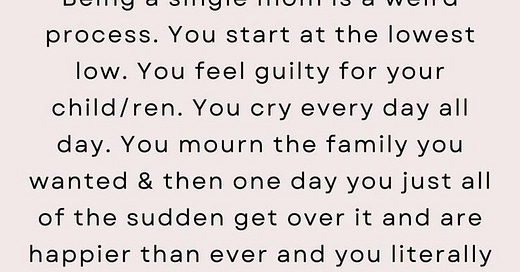



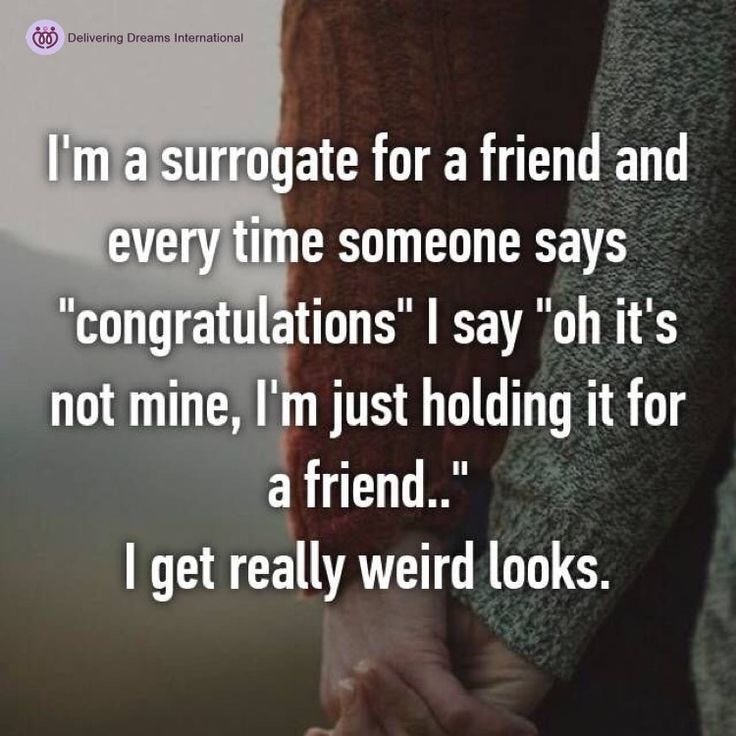

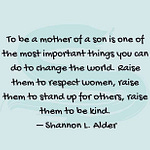
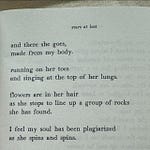
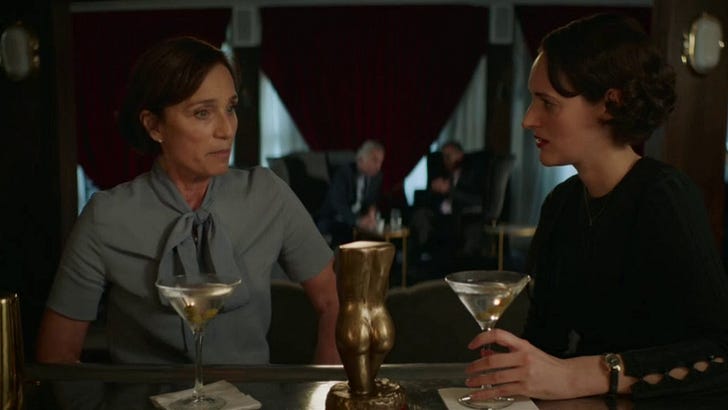
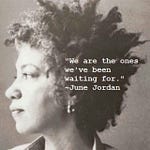

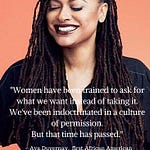
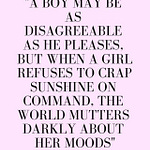
Share this post